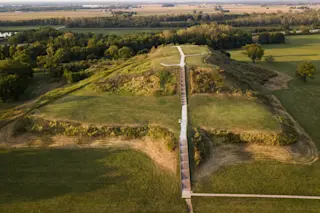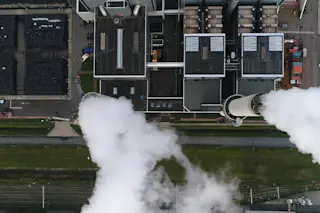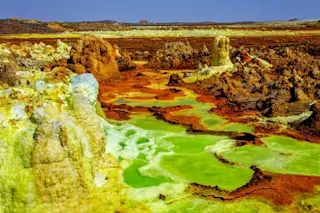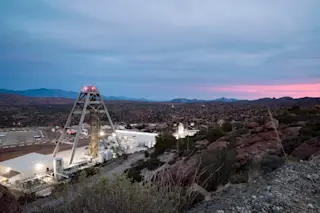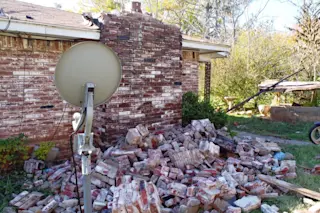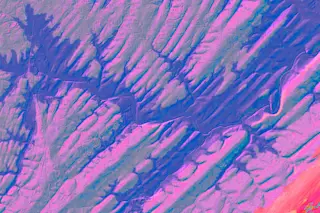I don't know why this hasn't (apparently) been reported before. But as I note today in Mother Jones:
Although so far it has received little or no attention, the journal Russian Meteorology and Hydrology recently published a new kind of geoengineering study whose lead author is the journal's editor, the prominent Russian scientist Yuri A. Izrael. Known for his opposition to the Kyoto Protocol, his skepticism of human-caused global warming, and his enthusiasm for geoengineering, Izrael also happens to be a top scientific adviser to Vladimir Putin. And now, his paper reports on what is probably the very first geoengineering field trial. Israel and his team of scientists mounted aerosol generators on a helicopter and a car chassis, and proceeded to blast out particles at ground level and at heights of up to 200 meters. Then they attempted to measure just how much sunlight reaching the earth was reduced due to the aerosol plume. The intervention was effective, the Russian scientists say. And in an accompanying article on geoengineering alternatives, Izrael and colleagues note that "Already in the near future, the technological possibilities of a full scale use of [aerosol-based geoengineering] will be studied." Up until now, scientists have largely studied the possibilities of geoengineering in relatively unthreatening computer models—not out in nature itself. They've just run a series of simulations to try to assess likely impacts. In this context, the apparent trajectory of Russian research sounds like something quite new. And it may prompt increasing calls for regulation of geoengineering interventions, even at the small scale research level where environmental consequences would be relatively minimal.
Note that this is a small scale field test; it is not like global climate is going to change because of this study. However, it does appear to break new ground, and moves us a step closer to actual interventions. My report on all this is part of a much larger article on how failure at Copenhagen will give geoengineering advocates an even stronger hand than they are already obtaining. You can read the full report here.



